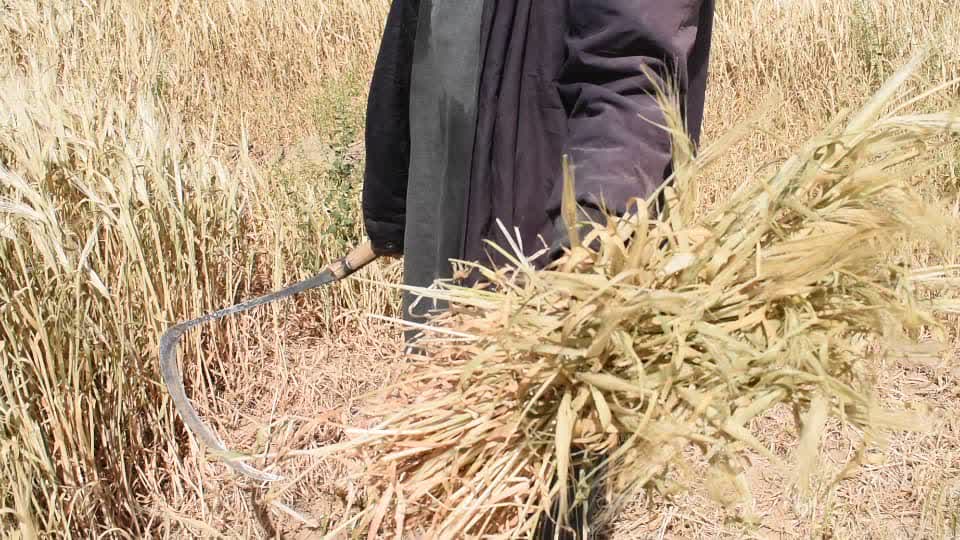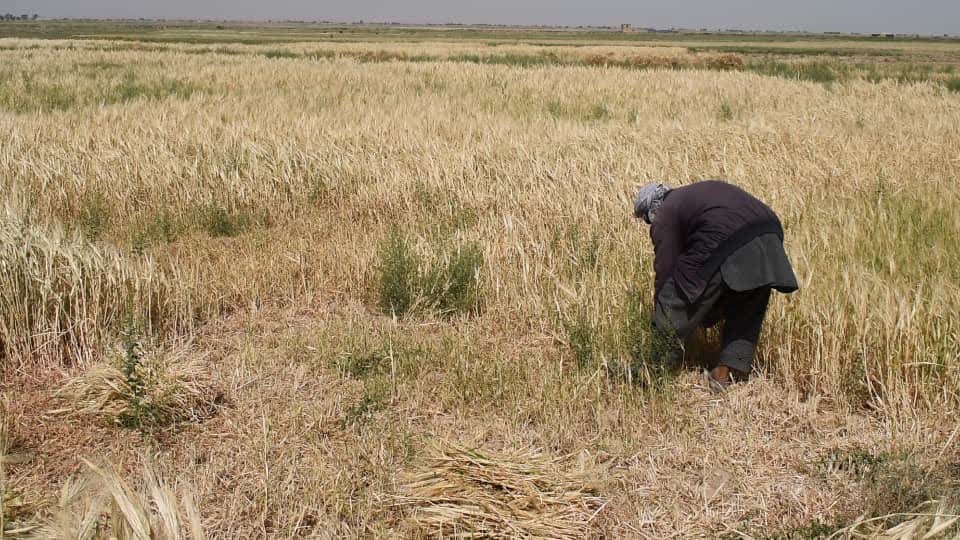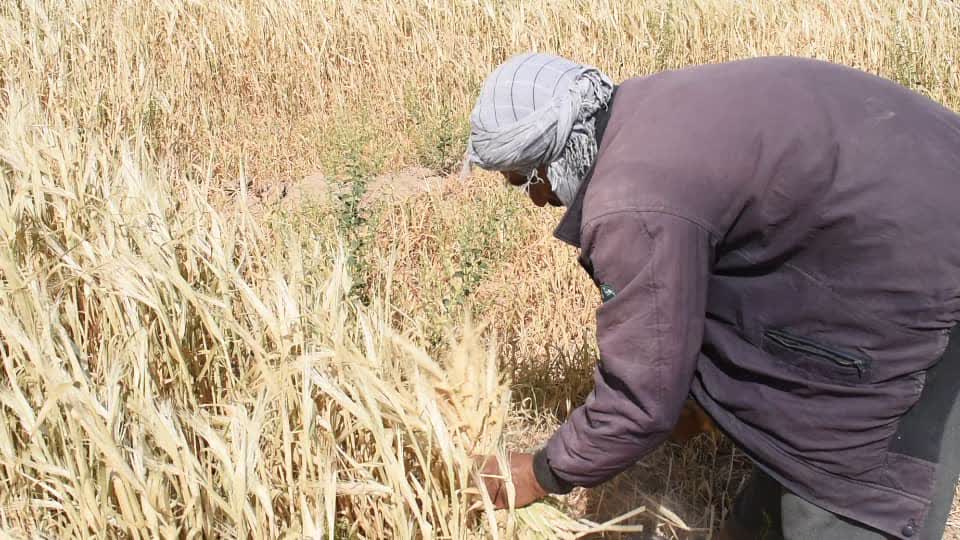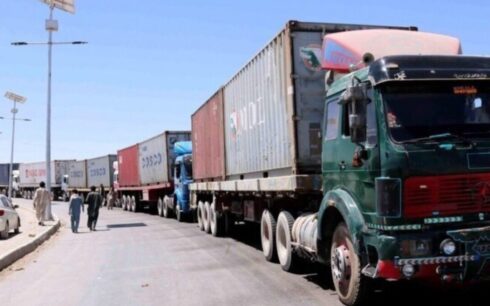For the past two years, Afghanistan has been grappling with a severe drought that has inflicted immense challenges on its citizens.
One of countless farmers affected by this crisis is Abdul Hahad from Balkh province and as the sun beats down on his parched fields he and his workers tear stalks of wheat out of the arid earth by hand.
The 55-year-old farmer used to plant wheat two to three times a year but in the last three years, he’s only been able to grow one crop due to the devastating drought. The yield from his nine acres of land is dwindling and his harvest is barely enough to support his family in Nahr-e-Shahi, a district in Balkh.
Before the drought, they could grow most of the fruit and vegetables they needed – melon, onion, eggplant and carrot in addition to wheat. He earned around 2.3 million AFN ($28,000) a year but now his harvest won’t reach 100,000 AFN ($1,200). Meat is costly and his extended family of 15 can sometimes only eat meals of bread and melon. The wells and rivers have also dried up and drinking water is now scarce in the area which easily reaches 40 Celsius in summer.

“People here are facing a lot of hardships, some people have left the village due to lack of water. We will keep planting crops even if there is a water shortage, because we don’t have any other option. This is the only profession we know,” he says.
Persistent and severe drought in Afghanistan is not only taking its toll on the lives of farmers but it’s threatening the country’s economy – a third of which is generated by agriculture – and also food security.
Experts say climate change will only worsen the drought. Higher temperatures, less rain and snow in the mountains will shrink rivers and prolong the drought. The Global Climate Risk Index has placed Afghanistan as the world’s sixth most affected country by climate-related threats.
Two years after the Taliban takeover in Afghanistan, stretched water resources and the struggles of agriculture are one of their top challenges.

With a sharp reduction this year in humanitarian aid and no foreign government formally recognizing the Taliban, aid workers and diplomats say the level of development assistance to help with the problem is limited.
The U.N. World Food Programme says 15.3 million people are facing acute food insecurity in the country of nearly 42 million people.
The Taliban administration is building a huge 280 kilometer-long canal in the north, which if successfully completed could divert water for irrigation throughout northern provinces and improve the situation for farmers. But it is still years away from completion and neighboring countries have raised concerns it will divert their water resources.





